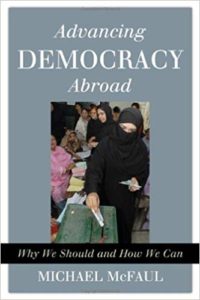
Even if 2020 marks a low point of U.S. democratic practice, supporting liberalism abroad must remain a vital element of U.S. foreign policy, says a leading observer. In a world already riven by competition among political models, dictators and autocrats sense wind at their backs, notes Richard Fontaine, the chief executive officer of the Center for a New American Security.
A dysfunctional U.S. democracy at home makes it less credible to support liberalism abroad—at a time when freedom continues a more than decade-long retreat around the world. When the world needs the United States to lead in the support of democracy, the country is deeply divided about the strength of its own. Abs ent a quick correction, this portends trouble for what has long been a core element of U.S. foreign policy, he writes for Foreign Policy.
ent a quick correction, this portends trouble for what has long been a core element of U.S. foreign policy, he writes for Foreign Policy.
But recent diplomatic initiatives on Vietnam and Nicaragua —and many others like them—run parallel to similar efforts by democracy promotion organizations such as the International Republican Institute (IRI), the National Democratic Institute, and the National Endowment for Democracy (above), Fontaine adds. With budgets well-financed by a supportive U.S. Congress, these organizations’ on-the-ground efforts to monitor elections, conduct polling, help build political parties, and strengthen the process of democracy remain vital.
There’s no reason to lose faith in democracy promotion as a core element of U.S. foreign policy, argues Fontaine, who worked on the National Security Council staff and at the State Department during the George W. Bush administration. On the contrary, recent experience should be a spur: For both its own sake and the world’s, the United States should prefer supporting democracy abroad to shaking its foundations at home. RTWT







